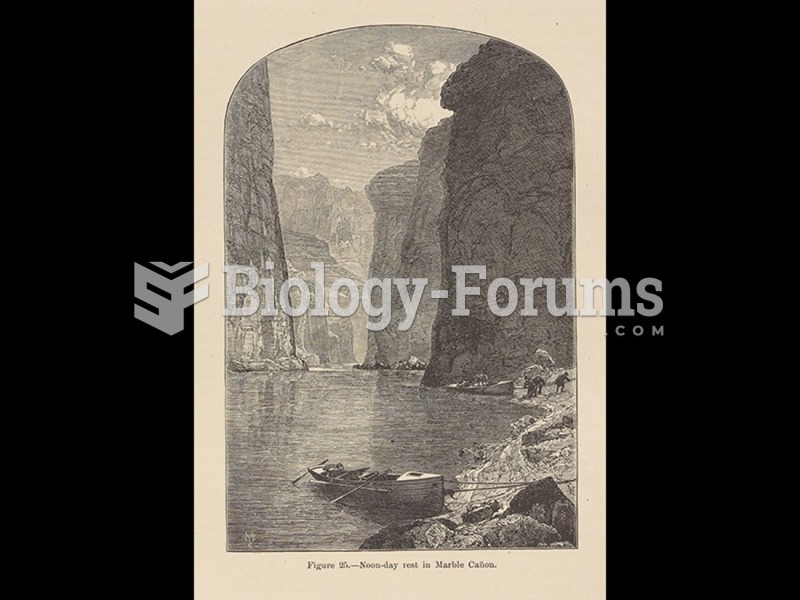|
|
|
The most common treatment options for addiction include psychotherapy, support groups, and individual counseling.
When blood is deoxygenated and flowing back to the heart through the veins, it is dark reddish-blue in color. Blood in the arteries that is oxygenated and flowing out to the body is bright red. Whereas arterial blood comes out in spurts, venous blood flows.
Ether was used widely for surgeries but became less popular because of its flammability and its tendency to cause vomiting. In England, it was quickly replaced by chloroform, but this agent caused many deaths and lost popularity.
Bacteria have flourished on the earth for over three billion years. They were the first life forms on the planet.
This year, an estimated 1.4 million Americans will have a new or recurrent heart attack.





